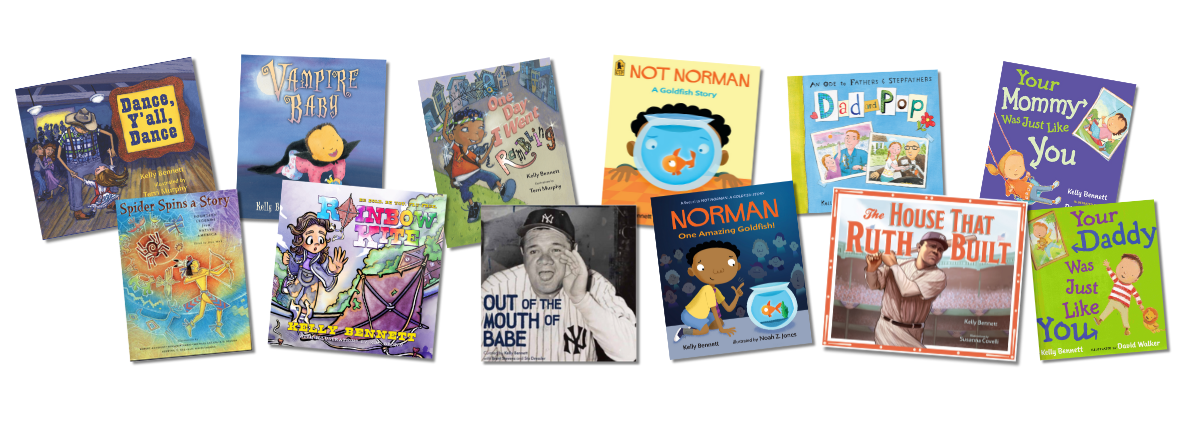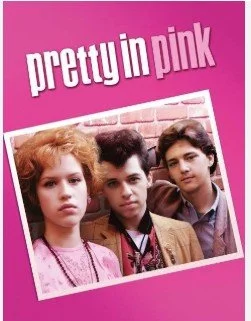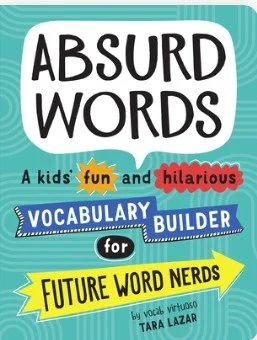Poetry Challenge #95: Coo-Coo For Coconuts
Back to Standard Time ticked-in a little too soon, too dark, and too cold…it has me longing, already for lazy, crazy summer. And so, even though it’s not (according to the calendar), let’s pretend it’s National Pina Colada Day!
Whether you do or do not like getting caught in the rain . . .
Whether you are or are not into health foods or champagne . . .
Regardless your opinion on waking up at midnight—
Let’s put the lime in the coconut and bust out in poetry Pul-lee-e-e-e-sa! PLEEESE!
Poetry Challenge #95
Coo-Coo for Coconuts
Thinking coconuts, tropical islands, pineapples ripe for the plucking, and coo-coo birds write a poem.
And yes, because the notion that there is even a National Pina Colada Day is slightly coo-coo, use as many words as you can think of which include the letters C and O in that order—and if you really want to cut loose, try including a bird call or two!
Set the timer for 7 minutes.
Start writing!
See what toucan caw-caw come-up-with!
*Cindy Faughnan and I began this 7-Minute Poetry Challenge more than 8 years ago. We now take turns creating our own prompts to share with you. If you join us in the 7-Minute Poetry Challenge let us know by posting the title, a note, or if you want, the whole poem in the comments.
Click on Fishbowl link below and sign up to receive email notifications from Kelly's blog (aka The Fishbowl):
SUBSCRIBE TO THE FISHBOWL
Poetry Challenge #94-Fireworks Spooktacular
Fireworks!!! I love fireworks!
In the book Freak the Mighty by Rodman Philbrick, Max and Freak attend the Fourth of July celebration. As the fireworks bloom overhead, Freak calls them out in all the chemical compound glory:
“Magnesium!” (Freak) shouts as the white sparkles glitter down over the pond. “Potassium chlorate!” as the shells go womp-womp-womp and everybody goes oooooh. “Potassium nitrate! Sulphur! Aluminum!” And after a burst of hot red fire in the sky, Freak tugs my hair and screams, “Copper! That’s copper powder combusting with oxygen!”
Poetry Challenge #94
Fireworks Spooktacular
Who says fireworks are only for Independence Day, sports and Celebrations of Life? (Yes, that is a thing…ashes to starbursts). Why not Halloween! Who doesn’t want to see a jack-o-lantern spewing sparks?
So in honor of Spooktacular, write a ghostly, spooky, goblin-ish poem that includes fireworks—either as nouns, verbs adjectives—or creatures! Maybe even as Freak did, use their chemical names. Let your words burst on the page!
Set the timer for 7 minutes.
Start writing!
Don’t think about it too much; just do it.
BOO YOU!
*Cindy Faughnan and I began this 7-Minute Poetry Challenge more than 8 years ago. We now take turns creating our own prompts to share with you. (This one was Cindy’s creation.) If you join us in the 7-Minute Poetry Challenge let us know by posting the title, a note, or if you want, the whole poem in the comments.
Click on Fishbowl link below and sign up to receive email notifications from Kelly's blog (aka The Fishbowl):
SUBSCRIBE TO THE FISHBOWL
Poetry Challenge #93-Pretty in Pink (Copy)
Close your eyes and repeat after me ten times: Pink Pink Pink Pink Pink Pink Pink Pink Pink Pink
Or maybe a Florida Belle . . .
What images came to mind?
Did you imagine cotton candy clouds?
Flamingos?
Ballerinas?
. . . A Pop Star?
... Molly Ringwald
with sprinkles!!
Poetry Challenge #93
Pretty in Pink
Use your Pink images to write today’s poem.
You might begin by listing everything that comes to mind related to Pink. Reorganize and embellish them to create a list poem.
Or, write a PINK acrostic poem, with each line beginning with a letter in the word PINK.
Set the timer for 7 minutes.
Start writing!
Don’t think about it too much; just do it.
*Cindy Faughnan and I began this 7-Minute Poetry Challenge before you were born (kidding…maybe…). We now take turns creating our own prompts to share with you. If you join us in the 7-Minute Poetry Challenge let us know by posting the title, a note, or if you want, the whole poem in the comments.
Click on Fishbowl link below and sign up to receive email notifications from Kelly's blog (aka The Fishbowl):
SUBSCRIBE TO THE FISHBOWL
Poetry Challenge #92: This Plum is Too Ripe!
All of us is sorry for or about something. (If you’re not, then lucky you!)
My All-Time Favorite Off-Broadway Musical—if you’ve never seen it, you should. Or you will be sorry…
Harvey Schmidt and Tom Jones drew on this uniquely human need* to apologize in a song about two neighbors who are great friends until they tear down a wall in the longest running Off-Broadway, sometimes on Broadway musicals of all times The Fantastiks. Here’s a snippet:
“This Plum is too Ripe!”
“Sorry.”
“You’re standing in MY Rose Garden!”
“Sorry.
And now, with no further apologies, on to our prompt:
Poetry Challenge #92
Who’s Sorry Now?
For this prompt, list things you are sorry for. (Your list can be as long or as short as need be.) Select one or several items that are related from that list and write a poem about it.
Finish the poem with a positive spin by suggesting ways you can, or might apologize. Or do it better next time . . .
* I don’t imagine whales apologize for combing up krill, or cheetahs apologize for mowing down gazelle, but maybe they do . . . if so: Sorry!
Set the timer for 7 minutes.
Start writing!
No Apologies, No excuses—Just do it!
Song for Inspiration: Who’s Sorry Now as sung by Miss Patsy Cline—Of course!
*Cindy Faughnan and I began this 7-Minute Poetry Challenge when the current POTUS was running for office the first time. It was to fend off impending darkness. (So sorry how that turned out.) We’ve continued as a way of adding a bit of light. And, we take turns creating our own prompts to share with you. If you join us in the 7-Minute Poetry Challenge let us know by posting the title, a note, or if you want, the whole poem in the comments.
Click on Fishbowl link below and sign up to receive email notifications from Kelly's blog (aka The Fishbowl):
SUBSCRIBE TO THE FISHBOWL
Poetry Challenge #91: Words! Words! Words!
Words! Words! Words!
I’m so sick of words!
I hear words all day through/first from him, now from you/is that all you blighters can do?*
YES, Eliza! The answer is unequivocally, unapologetically, YES!—so on to the Challenge:
Poetry Challenge #91
A Few of My Favorite Words
Do you have favorite words? If you do, pause right now and jot them down.
I love to collect words I hear or read that are unfamiliar or that have an interesting sound. I try to remember to write them down to use another day. As you go through your day, pay attention to words that you like the sound or meaning of. Write them down! Save them!
A few I like are: Lilliputian, grommet, butterfly, whimsical, and gumption.
Think of five of your favorite words.
If you can’t think of words, open to a random page in the dictionary and find a word you like.
Write a Poem using one or more of the words on your list. Extra noogies if you use them all!
You can use some of my favorite words if you like.
Set the timer for 7 minutes.
Start writing!
Don’t think about it too much; just do it.
* Eliza sang those words to Freddy in Lerner & Lowe’s My Fair Lady. The song is Show me, Now!
Here’s another ditty for inspiration: Three Little Words by Kalmar & Ruby
And one more because I just can’t help myself: My Favorite Things from The Sound of Music by Rodgers & Hammerstein
**Tara Lazar’s book Absurd Words is everything the cover says it is—and definitely not “just for kids”!
*Cindy Faughnan and I began this 7-Minute Poetry Challenge 3200-ish days ago. We now take turns creating our own prompts to share with you. (This one is Cindy’s; the “I” is her speaking. If you join us in the 7-Minute Poetry Challenge let us know by posting the title, a note, or if you want, the whole poem in the comments.
Click on Fishbowl link below and sign up to receive email notifications from Kelly's blog (aka The Fishbowl):
SUBSCRIBE TO THE FISHBOWL
Poetry Challenge #82-Diamond in the Rough
“Square cut or pear shaped, these rocks don’t lose their shape”…take a listen; great lyrics!: https://youtu.be/KsRqhCWYfsQ?t=4
How are poems like diamonds?
Diamonds…gems/rocks/stones— come in many shapes, colors and sizes, and from there are cut, shaped and polished into heart’s desires. Poems begin as a jumble of words and from there are shaped to reflect heart’s desire.
Poetry Challenge #83
Diamond In the Rough
Write a diamond-shaped Diamante about something you value.
A Diamante is a diamond-shaped poem, simple as that.
Diamante poems begin with a one word or syllable line.
Each subsequent line grows longer by one than the previous line. The longest line is the mid-point of the poem.
From there, the lines decrease by one until reaching the last one word line.
The shortest Diamante has three lines of one syllable words.
Here’s a Diamante Frame if you prefer structure.
One
Two words
One
Once you have the words, polish your poem until it shines!
Set the timer for 7 minutes.
Start writing!
Don’t think about it too much; just do it.
*Cindy Faughnan and I began this 7-Minute Poetry Challenge 3200-ish days ago. We now take turns creating our own prompts to share with you. If you join us in the 7-Minute Poetry Challenge let us know by posting the title, a note, or if you want, the whole poem in the comments.
Click on Fishbowl link below and sign up to receive email notifications from Kelly's blog (aka The Fishbowl):
SUBSCRIBE TO THE FISHBOWL
Poetry Challenge #81-I’m Feeling List-Less
According to Psychology Today, Elizabeth Barrett Browning’s “Let me count the ways”…wasn’t just pie-eyed, moonstruck rambling. It was good old-fashioned self care.
Make it stand out
According to Robert R. Kraft, PH.D in
“10 Benefits of Making a List”
Lists “help memory and focus our daily lives.”
HOW?????
“1. Lists document what we ordinarily forget.
2. Help us remember across context.
3. Act as a retrieval cue for other items.
4. The linear layout of a list is friendly to our serial processing.
...and the list goes on!”
List from Life Without Pants blog—add it to your list!
Poetry Challenge #81
Make a List
List making is not a new concept in organizing, in procrastinating, or in poetry.
Soooooo many poems are list poems: The Bill of Rights, Barrett’s “Sonnet 43,” Billy Collins’ “Bread and Knife,” Shel Silverstein’s “Eighteen Flavors” to name a few.
In a list poem, you can list things you like (animals, colors, kinds of cars, playground games), signs of a season, tasks you have to do, items in a category, or what you’re going to do today.
Today, try you pen at a list poem.
Begin with your plans for the day today. Or start with a list inspired by one of the ideas above.
Once you have your list, play with the order.
Choose better words that sound the same (maybe rhyme, or use alliteration).
Can you make the poem sound like it has an ending?
Set the timer for 7 minutes.
Start writing!
Don’t think about it too much; just do it.
*Cindy Faughnan and I began this 7-Minute Poetry Challenge 3200-ish days ago. We now take turns creating our own prompts to share with you. If you join us in the 7-Minute Poetry Challenge let us know by posting the title, a note, or if you want, the whole poem in the comments.
Click on Fishbowl link below and sign up to receive email notifications from Kelly's blog (aka The Fishbowl):
SUBSCRIBE TO THE FISHBOWL
Poetry Challenge #79-Fibonacci Awakening
Hurrah! Everything is in bloom! Take a close look at the way the leaves on a plant and petals on a flower grow. Notice how they often grow in a pattern: One in the center; next row 2; third row 3; fourth row 5; fifth row 8 and so on. This pattern, which allows each leaf/petal to have maximum exposure to light and moisture while maintaining a tidy spiral pattern, called is the Golden Ratio, is the Fibonacci Sequence in action! Pure poetry, right! Which leads naturally to today’s prompt:
Fibonacci Sequencing Succulent
Poetry Challenge #79
Fibonacci Awakening
Number sequences are fun ways to create a form for a poem in that they pose a puzzle without too many rules.
For this prompt let’s add some geeky science fun to our poetry with Fibonacci.
A Fibonacci sequence begins with 0 and 1. Each number is the sum of the two previous numbers. The third number would be 0+1=1. The fourth number is 1+1=2. And so on.
Write a poem matching the number of syllables or words on each line with the first six numbers in the Fibonacci sequence: 1, 1, 2, 3, 5, 8.
Set the timer for 7 minutes.
Start writing!
Don’t think about it too much; just do it.
When you finish step outside and find the Fibonacci Busting out all over!
If the Fibonacci has you fired up for More MATH! Here’s a fab Math Challenge game!
*Cindy Faughnan and I began this 7-Minute Poetry Challenge more than 8 years days ago. We now take turns creating our own prompts to share with you. If you join us in the 7-Minute Poetry Challenge let us know by posting the title, a note, or if you want, the whole poem in comments or on social @kellybennettbooks


























